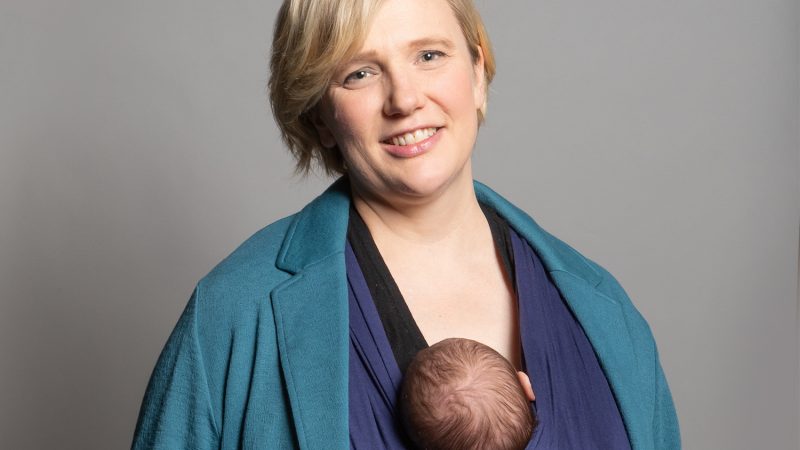
Women make up 43% of those contributing to the exchequer – paying in just a third of the money raised. This International Women’s Day it’s time to stop asking nicely for change, and instead ask for the bill when it comes to inequality.
Austerity has driven our economic and social infrastructure into the ground. Had we instead spent the last decade focusing on addressing the fundamental imbalances in our economy – not just gender but also ethnicity, regional and disability discrimination too – we would not just be a more productive economy, but a wealthier one too. International research shows tackling gender inequality alone could lead to an increase in GDP of about 12% by 2050. McKinsey research shows how those companies which are gender diverse are 15% more likely to have financial returns above their respective national industry comparators.
Yet despite the economic benefits, efforts to close the gender pay gap are going backwards not forwards under this government. An 18-year-old woman entering employment today will now have to wait until she turns 56 before the gender pay gap closes, and the date slips further and further each year. It’s not hard to see why progress has stalled.
During Covid gender pay gap reporting was the only, and immediate, business reporting requirement the Government dropped. It has not even met its own target to review the scheme five years on from its introduction. Instead claiming that the churn of ministers from repeated reshuffles meant they couldn’t do the work involved. The value of gender pay gap reporting to equality lies in being the start not the end of Labour’s plans for office.
This is critical not least because research to date shows reporting has only led to a 1.6% increase in women’s hourly wages relative to those of men. Knowing you are being underpaid compared to male colleagues is one thing; the action we need to take to tackle it depends on recognising the trends behind it.
That’s why some may argue the gender pay gap is misnamed, because for those women under thirty it is now just 3% between men and women, a statistical blip perhaps. Along with fashion sense, music taste and school-based friendships in your mid-thirties women suddenly lose ground. By the time you are over 40 the pay gap has leapt to 12% between men and women. For this group the pay gap itself is over three times that for women in their thirties – a disparity that only continues to widen in all sectors and at all ages.
Whether due to the part time work penalty, the discrimination experienced by those who work flexibly or the motherhood penalty, this ultimately costs us all. Recent research from the Centre for Progressive Policy (CPP) estimated lost economic output of upwards of £27bn, which equals 1% of GD , because women can’t get the childcare they need to be able to work as much as they want. As of December last year 72.3% of women in the UK were in some form of employment, as opposed to 79% of men. Of the women who might otherwise fill that 6.7% gap the CPP estimates that 540,000 mums have been held back from entering paid work and 470,000 have quit their employment on account of issues with childcare.
In the last few years more and more women report having to leave the workforce all together because they can’t get the childcare they want – with nearly 400,000 now not working who want to do so because of caring commitments, up an extra 46,000 on last year. A lack of childcare doesn’t just hit being able to work, it also affects a woman’s ability to progress. The CPP states that inadequate and expensive childcare has forced almost a million mothers to turn down or not even apply for a job with a higher salary, whilst 910,000 said their opportunities for job progression were impacted by childcare issues. Despite this economic hit, neither the current Chancellor nor the previous one have yet to utter the word once during a budget.
It’s not the only cause of the gender pay gap – stereotypes about certain jobs, old fashioned explicit discrimination and the intersection of ethnicity and disability as well as regional disparities also play a part – but it is an example of a policy where we can lead with a crucially affordable solution. Investing in providing universal childcare would help narrow the gender pay gap, at midlife and beyond, and so generate the tax take to make it sustainable.
This year equal pay day – the day by which women must keep working to earn the same as their male counterparts in 2022 – is next Tuesday, March 14th . If we want it to be January 1st in our lifetimes we need not just a right to know what our male colleagues are earning, or to extend gender pay gap reporting. We also need to invest in tackling the many obvious barriers holding so much female talent back. Winning the case for that means recognising we can’t afford not to do so. As the data shows, ignorance of the part women can play in our economy costs us all dearly.




More from LabourList
‘I spent years telling workers the law couldn’t help them – that has changed’
Josh Simons resigns as Cabinet Office minister amid investigation
‘After years of cuts, Labour’s local government settlement begins to put things right’